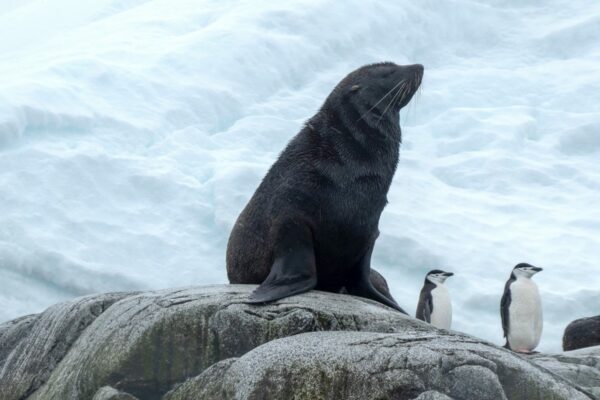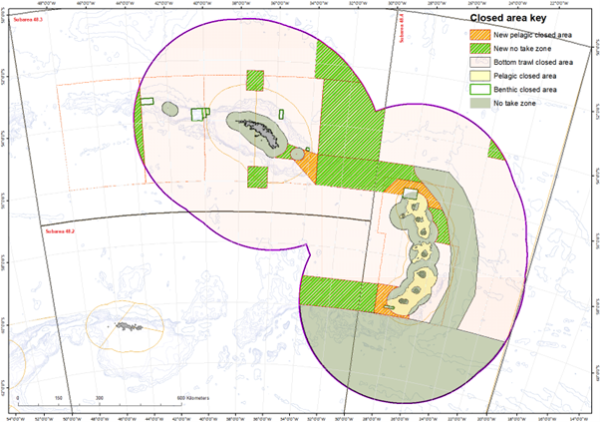The government of South Georgia & the South Sandwich Islands has announced plans to introduce significant enhancements to marine protection in the Southern Ocean.
The announcement of an additional 166,000km2 of ‘No Take Zones’, covering an area eight times the size of Wales, will result in 449,000km2of highly biodiverse marine habitat being closed to all fishing activity.
Photo: Derek Oyen
The South Georgia and the South Sandwich Islands government (SGSSI), alongside the UK government, announced the expansion following the end of a five-year review of protection. These measures will result in 36% of the SGSSI Maritime Zone being closed to fishing activity with an additional 17,000km2 closed to krill fishing through the introduction of additional pelagic closed areas.
Globally significant biological hotspot
SGSSI is over 1,700 kilometres from the southern tip of South America and the area hosts what could be the single largest concentration of marine species in the world. The islands provide habitat for more than four million Antarctic fur seals, more than 95% of the world’s population—and more than half of the world’s southern elephant seals.
South Georgia has as many as 100 million seabirds, including vast numbers of penguins, albatross, prions, and petrels. Huge baleen whales including blue, fin and humpback are returning in greater numbers each year, having almost been wiped-out during the period of industrial whaling in the 1900s.
Map of the South Georgia & the South Sandwich Islands Marine Protected Area, highlighting the new closed areas. Source: SGSSI
The most biodiverse place in the UK’s 16 Overseas Territories
The Pew Bertarelli Ocean Legacy Project, working in partnership with the Great Blue Ocean coalition, has welcomed the announcement. Johnny Briggs, from Pew Bertarelli Ocean Legacy Project said: “Amid dual threats of climate change and biodiversity loss, this is a pivotal step towards safeguarding a global wildlife hotspot. The government has demonstrated best practice in marine management—applying new science to protect crucial migratory corridors for species such as baleen whales and toothfish.”
Adrian Gahan, Chair of the Great Blue Ocean coalition, said: “This is the most biodiverse place in all of the UK’s 16 Overseas Territories. While regional whale recovery is impressive, the ever-increasing demand for krill fishing in the Antarctic is alarming, so we congratulate the Government of South Georgia and the South Sandwich Islands and FCDO Minister Lord Benyon for making these significant enhancements to what is already a world-class protected area.”

